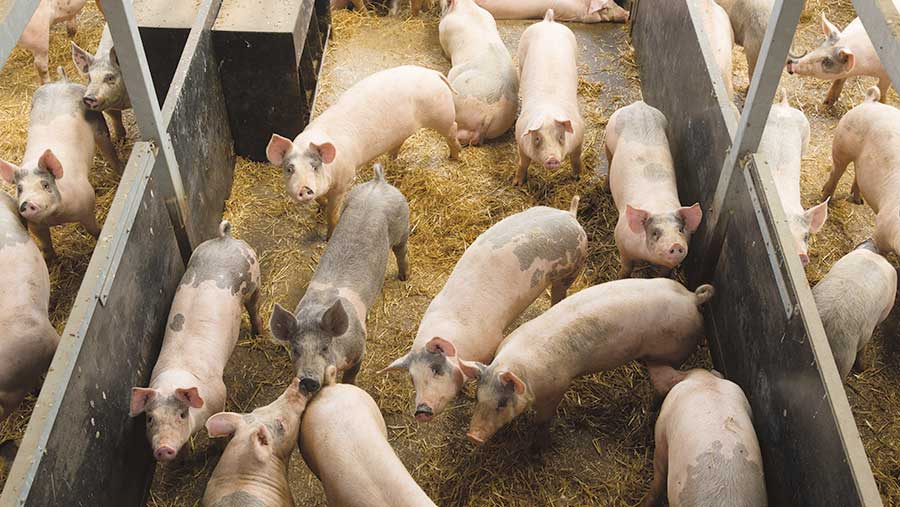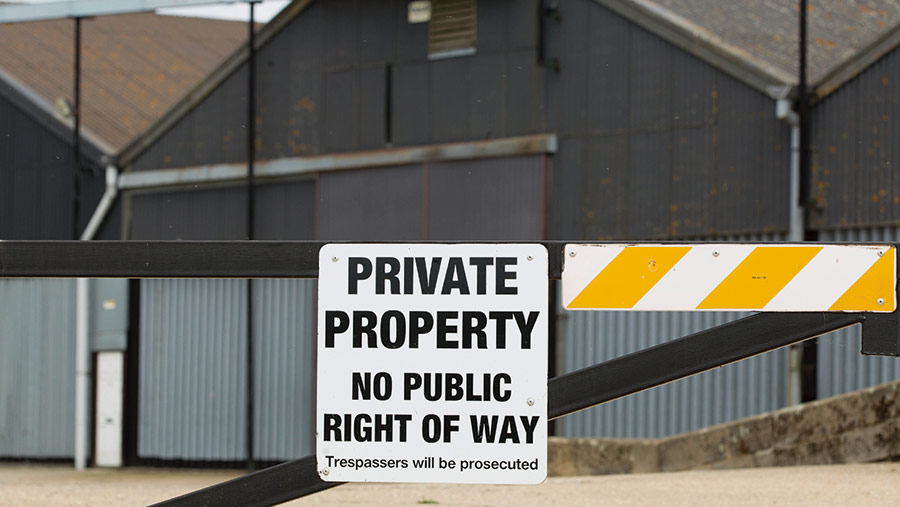7 ways to deter incursions by pig activists
 © Tim Scrivener
© Tim Scrivener Movements that oppose pig production are already established in Essex, Manchester, Liverpool and Yorkshire, says National Pig Association (NPA) chief executive Dr Zoe Davies.
Funding from larger groups is also allowing individuals to work full time to recruit up and down the country.
See also: Animal activists step up campaign targeting pig producers
With incursions seemingly intensifying, Dr Davies offers the following advice on what to do to prevent incursions by activists, and what action to take if you catch campaigners in the act.
1. Keep your unit tidy
Most importantly, be sure to leave your unit how you would like it to be found – whether it be by officials during a spot-check or by anti-meat activists.
This means ensuring deadstock, used medicine bottles and medical instruments such as syringes are tidied away at the end of each day.
“Ask yourself: if someone came on to your unit in the middle of the night, would you be happy with what they found?” says Dr Davies.
2. Signs of an incursion
Typically, activists are very careful not to leave clues, but often move objects or deadstock to produce better pictures.
Signs of an incursion by activists include:
- Locks that have been tampered with
- Doors previously closed now wide open
- Interconnecting pen gates left open
- Mixing of animals
- Discarded rubber gloves and overshoes
Another sign that people have entered your unit without permission is unexplained deaths or outbreaks of disease.
Many pig units are closed, but activists can inadvertently transfer disease from farm to farm or from abattoir to farm.
If you suspect an incursion by activists, contact the police and inform the NPA.
3. Suspicious phone calls
Activists will commonly call farms and farm shops with an enquiry – for example, they might ask about purchasing a pig for a hog roast.
Often they will ask about animal welfare, but are unable to provide details when pressed about their enquiry.
“They’re not going to give much away,” says Dr Davies. “But that will give you an idea if it is a dodgy call.
“Just try to get some details out of them. If anything, it might put them off calling again.”
See also: Pig sector hits out at tactics of anti-meat campaigners
Cases of people calling – and even turning up – claiming to be from the Animal Health Agency, Trading Standards, the Environment Agency, the RSPCA and even the local water board have also been reported, she adds.
The Animal Health Agency and Trading Standards do perform spot-checks, but will normally call to give some notice – even just a few hours – before they arrive.
Before allowing anyone to inspect your pig unit, ask for identification.
If still unsure, contact their head office or the NPA. If they cannot produce suitable identification, ask them to leave.
4. Checks on new staff
With new staff, be sure to follow up on references from previous employers.
Get a copy of a valid form of identification, such as a passport, to make sure they are who they say they are.
Veterinary students are often required to gain experience on a pig unit.
Due to the problems with unwanted visitors, many veterinary schools and colleges now produce a letter of recommendation.
5. Install cameras and infrared sensors
The NPA has urged producers to install infrared security cameras to collect evidence against people who break into their units.
Many producers visited more than once by activists are already taking heed, says Dr Davies.
See also: Pig farmers told to install cameras to fight anti-meat activists
However, a larger number are installing infrared beams to detect farm intruders.
Often placed in pig unit doorways, the beams are not visible to the human eye, even at night.
If the beam is broken by someone entering the unit after hours or without permission, an alarm is triggered.
6. Signs
Dr Davies says the NPA would prefer farmers not to install perimeter fences “as we don’t want farmers creating fortresses”.
While farmers should consider perimeter options, signs can also be a deterrent.
Put up signs that clearly state to any visitor that they must make their presence on the unit known by either first visiting the farm office or calling a specified telephone number.
7. Keep calm
If activists do manage to access your unit without permission, calmly ask them to leave before contacting the police and informing the NPA.
“Remain calm and ask them politely to leave, rather than getting irate. It’s about safety – you just don’t know how they will react.”
To date, confrontations between farmers and campaigners have been verbal, and no physical incidents have been reported, says Ms Davies.

